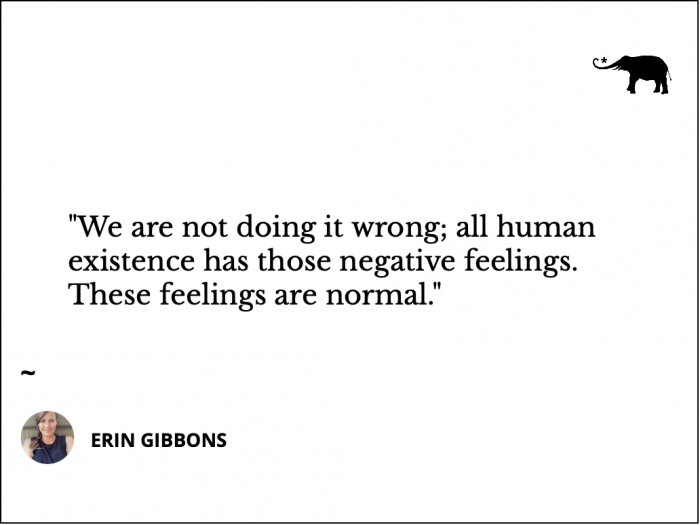View this post on Instagram
Every day, we choose how we react to the circumstances and people around us.
Although it may not feel like it at times, we do control our emotions and how we display them to the world. Each day the things we do or do not do all depend on how we believe those things will make us feel.
Each interaction we have and each choice we make is all based on the feeling it gives us. How do we improve the choices we make about our feelings?
We strengthen our emotional health.
So, what exactly is emotional health?
Some might say it’s happiness. That was how I initially wanted to define it. If we are happy, then we are emotionally healthy. But, if that were true, that would mean when we felt sadness, grief, or disappointment, we would temporarily shelve our emotional health. Or, if we had to be happy all the time to be emotionally healthy, we would miss out on half of the feelings that make up the human experience.
Plus, let’s be honest here, we don’t want to be happy during times of sadness, grief, disappointment, or other uncomfortable feelings. We want to feel those feelings.
The core of our humanness wants to allow those emotions to signify that our life is happening and unfolding. If we were happy through it all, where would we find the substance and significance of life? Would we be able to look back and see the nuances of life?
How would each life event be defined in our memories if there were no tears, struggles, or effort but just a continuous stream of the same feeling?
Happiness is not the way to emotional health. Being aware of and fully feeling our emotions and life experiences is the way.
Being emotionally healthy is identifying and processing our feelings and emotions throughout our lives. It is being able to bounce back after we experience a negative emotion.
Emotional health is understanding that the human experience is bursting with all these different feelings that we humans can understand.
It is being able to acknowledge and process those feelings without resisting or distracting while also not falling into the trap of getting stuck in their cycle.
It is understanding that this life and all the emotions that come with it aren’t all good or all bad—we have a blend of both. It is knowing and accepting that we need that contrast, that yin and yang of life.
We need the bad to be able to appreciate the good. Emotional health is taking full responsibility for our emotions, knowing that we create all our feelings by our thoughts, knowing that circumstances and other people do not determine how we feel—we choose how we feel.
It is handling the uncomfortable feelings without letting them bleed out into our surroundings and relationships. It is knowing how to allow, process, and let go internally.
A large part of being emotionally healthy is being emotionally mature. This means that we take responsibility for our emotions without blaming the circumstances or the people around us, and we can recognize and empathize with another’s emotions. An emotionally mature person can regulate and control their feelings and knows they cannot control the people or circumstances around them.
This can be extremely challenging to know, understand, and practice. While it can be difficult, it can also be empowering because we realize that we are in control, not our circumstances or the people in our lives. When we accept responsibility for all our emotions, we regain our internal power instead of giving it over to someone or something else.
When we realize we are in control, we can change ourselves, which is so much easier than changing someone or something outside of ourselves.
Emotional health and maturity is being able to handle our feelings without reacting or lashing out, without blaming and shaming, not only to others but to ourselves as well. This doesn’t mean that we never feel negative emotions because of what someone did or said or something that happened in our lives.
Emotional health is living our lives consciously instead of unconsciously.
When we live consciously, we are aware of our emotions, how we display them to the world, our actions, and how they affect our world. When we live unconsciously, we believe things happen to us. We believe we do not have control over our feelings and what we manifest in our world. Being emotionally healthy allows us to live our lives consciously.
Although having emotional health and maturity are probably some of the most essential life skills we can learn and practice, they are not widely taught or even on the radar for most. Many of us live in a culture that uses distraction of all kinds to avoid uncomfortable emotions while at the same time being taught painful emotions shouldn’t exist.
We live in cultures that pride themselves on powering through, “manning up,” and the 80-hour workweek.
We live in cultures that consider overdrinking, overeating, and overbuying as normal behaviors. All these distractions are woven into our society to relieve our discomfort.
Many of us have adopted these behaviors from a young age to cope with life. We use distractions because we think we shouldn’t suffer, so we resist these common, uncomfortable emotions, and we end up suffering about our suffering. We don’t know how to be emotionally healthy or even that there is such a thing.
We use these distractions to manage our feelings because we think we are doing it wrong. We use these distractions to make it through each week, but they keep us stuck in a perpetual cycle of unnecessary suffering. This world co-exists with suffering. There has never been a time in human history where suffering didn’t exist.
We are not doing it wrong; all human existence has these negative feelings. These feelings are normal. We must build up our emotional health to learn how to allow and accept these feelings and move through them.
Emotional health is one of the most important skills we can learn in our lives since our feelings motivate everything we do or don’t do. How a person deals with their emotions and resilience to life is one of the greatest indicators of success. Emotional health is like any other skill or muscle (physical or mental)—we must use it to remain strong.
Emotional health and maturity are complex concepts, and there is so much to learn. Emotional health and the ways to achieve this skill should be taught in our schools and the home. Not only do our children need to know this skill, but adults do as well. We could improve our relationships with others and ourselves, and the trickle-down into the world could be amazing!
~


 Share on bsky
Share on bsky





Read 0 comments and reply